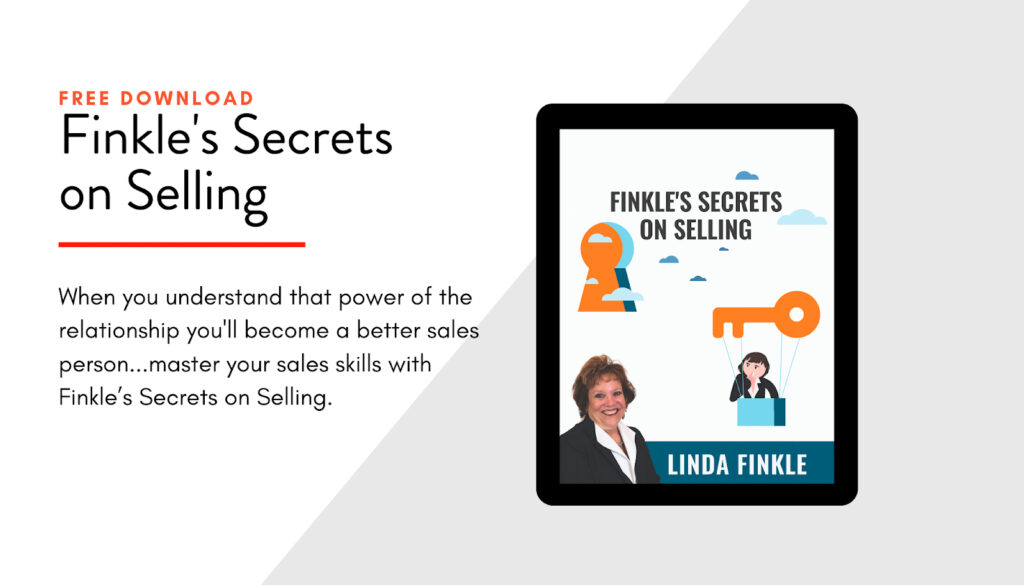In sales training, assuming your company actually provided you any, you learn about the product or service you are selling. Maybe they teach you how to handle objections or discuss pricing with the prospects. What is often missing in sales training, even in sophisticated sales training programs is a few key techniques that if you don’t do can cost you millions of dollars over the course of your sales career.
What are those things you may not be doing that can cost you sales? The list below is from my experience training and developing sales people over more than thirty years. It’s what I have found often separates the good sales professionals from the great sales professionals. Let’s take a look
1. Not knowing your statistics. You can’t plan your revenue/sales goals without knowing your statistics. How many appointments do you need to close a sale (or write a proposal)? What is your closing rate? How many people do you need to contact to secure an appointment? What percentage of your business is repeat business vs new clients? How many referrals are you getting? What is your average sale? What is the length of your sales cycle? And the list goes on. If you don’t know these statistics you are simply shooting in the dark when working with prospects.
2. Giving up too soon. It’s rare that you will contact a prospect and they are ready to buy. Of course it happens but not often. I find that sales people often reach out to a prospect a couple of times and then give up and move on to new prospects. People buy at different times for different reasons. Sometimes it takes years to develop trust and build a relationship. I’ll never forget when I was recruiting an employer called me after more than two years of me reaching out to him several times a year, even when he didn’t respond to my calls. When he contacted me and said he was ready to use my service he shared that he had waited to see if I was going to be in business for the long haul before using me. You never know someone’s motivation or needs or timing.
3. Not asking the tough questions. We all have these inklings that something isn’t quite right with the deal and more often than not ignore them and hope they don’t become a problem. The prospect that mentions your pricing is higher than others isn’t saying that because they are thinking out loud, it’s something you need to address. When they say they really wanted blue (and you don’t have blue) you can’t ignore it. Always always ask the tough questions. It may mean you learn that you can’t close this deal and at least you’ll learn before you invest a huge amount of time. And it’s possible you can address their concern early enough in the process and handle it.
4. Not doing what you say you are going to do. It’s the little things that people notice and matter to them. Doing what you say you are going to do when you say you are going to do it. If you promised to get them information by Wednesday and don’t yet have it, contact them and let them know and when to expect it. Think about it. If you don’t do what you say you are going to do, when you say you are going to do it before they become a customer, what can they expect after you become a customer?
5. Pushing the process too soon, on your time line. No one likes to feel pushed and manipulated. I personally hate it when someone tells me they need to get this deal closed before the end of the month (to make their numbers). Sales is not a sprint, it’s a dance that you and the prospect do together and you have to follow their lead.
6. Assuming because you got the referral you don’t have to sell. A referral simply means that someone thought enough of you to provide your contact information. It in no way indicates that they are ready to buy from you. Treat every referral as if they came to you cold and don’t shortcut the sales process.
7. Holding onto a prospect for too long. This is not a contradiction to the bullet above. Here I’m referring to someone you have begun the sales process with. You’ve had two or three meetings and each time they have an objection or a reason they aren’t saying yes. Ask the tough questions and if you can’t get them further along it’s probably time to move on.
8. Holding firm to price or something else. You have to assess what the long term potential value of this prospect might be and I have often turned a small sale into a larger one. Many years ago I had a prospect who hired me for sales training. I priced it so they couldn’t say no, even though it was way below my typical fees. They loved the training and hired me to do coaching and then strategic planning and then coaching of their senior leadership team. Over four years I generated over $250K from this client from the initial sale of $3K for two days of training.
There are many things that sales people don’t do (and a few they do) that cost you money. If your average sale is $1000 and you lose three a year by not doing something, over the course of your sales career that becomes a big number. Sales skills are more than learning how to handle objections or sharing the features and benefits of your offering. We sell to people and that means connecting with them at the human level. Forgetting this may not cost you millions but I guarantee you will lose sales, and maybe even get out of sales because you aren’t successful.
Want More Selling Tips?
I have created a list of my top tips that I have personally used over and over again to become a top salesperson.









